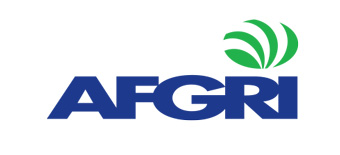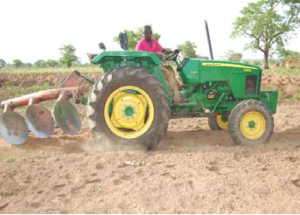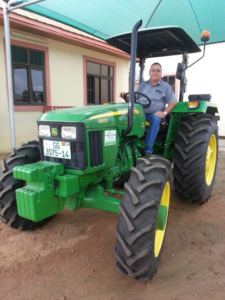Media Release
Nation in Conversation
Nampo Harvest Day
12 – 1 5 May 2015
The vastness of South Africa, coupled with a good climate allows the country to be a leading food producer, producing sufficient food to feed the nation and export surpluses globally.
In order to ensure sustainable agricultural practices into the future, it is, however, essential that the sector invests in the development and training of emerging farmers to become more commercially viable.
South Africa’s commercial farmers form backbone to ensuring food security for our nation and economic stability. Agriculture remains one of the largest employers in the country.
AFGRI, as a leading South African agricultural services and food company, is committed to playing its part in providing support to existing large commercial farmers and contributing to the development of smaller, emerging farmers. It helps to ensure that skills, passion and talent are passed from one generation to the next. The industry needs to keep pace with technological changes, advances and changing food requirements.
Commercial farming in South Africa is a highly-complex and sophisticated business. Given the technological revolution in farming, even emerging farmers now have to be well-equipped in order to become the commercial producers of the future.
Access to finance and efficiencies is key, and land transformation remains a challenge to South African agriculture. AFGRI believes support of emerging farmer is paramount to the transformation of this sector, without losing sight of the importance of the commercial farming sector.
“Viable agriculture ensures food security, employment opportunities and forex exchange earned from exports for the country,” explains Chris Venter, CEO of AFGRI.
It is for these reasons, and in recognition of Government’s efforts to transform the agricultural production sector, that AFGRI launched its Harvest Time Investments initiative in 2012.
The Harvest Time Investments programme is targeted at micro emerging farmers and large emerging producers. It operates as a joint venture with the Vastfontein Community Centre outside Hammanskraal near Pretoria. The programme assists its members with a diverse range of practical and theoretical training over a five-year period. They also benefit from experienced mentors and tutors giving guidance throughout the entire agricultural value chain.
The emerging farmer initiative operates within the parameters of a number of strategic partnerships including seed, fertiliser and other input suppliers, mechanisation companies and a number of governmental bodies.
Direct benefits include technical skills transfer, more employment opportunities, increased personal income and community transformation.
“A pivotal aim is to assist farmers to realise their potential and that of their farms. We are convinced that this sector will continue to contribute to the development of our country and people,” says Venter.
Given its commitment to the development of the local agricultural industry, AFGRI is pleased to support the Nation in Conversation dialogue platform at Nampo 2015. “We believe Nation in Conversation champions the cause of agriculture. Wide and on-going consultation is required to move our industry into a new era,” says Venter.
Nampo Harvest Day annually draws all the relevant role players in agriculture together over a four-day period. This platform allows conversations to take place amongst key role players so that major issues affecting agricultural producers in South Africa can be brought to the fore.
AFGRI will be participating in Nation in Conversation from 12 – 16 May 2015, where topics include labour relations, land reform, availability and sustainability of natural resources, and technological integration in agriculture.
Panelists participating in the debates are well-versed on these topics. “The value AFGRI adds stems from our experience and knowledge of what is happening at a ground level in agriculture. Our sector will continue to contribute to the development of our country and its people,” ends Venter.




